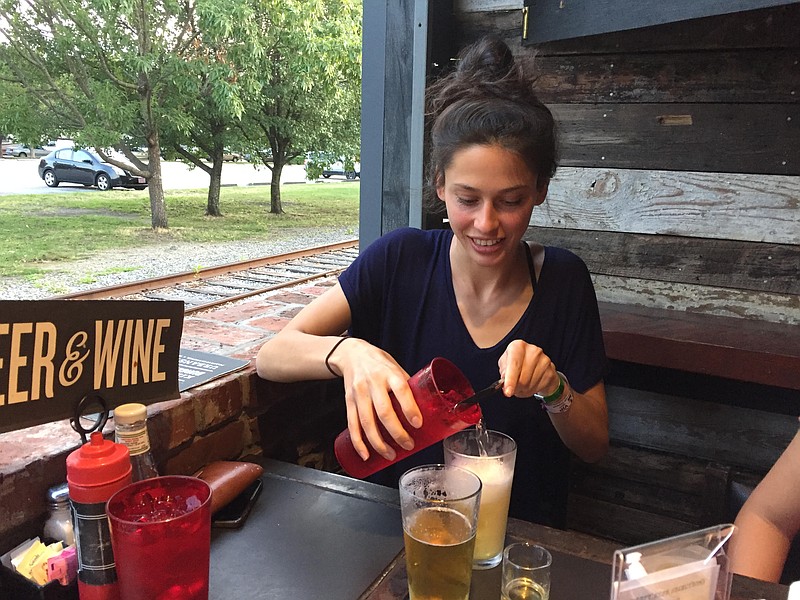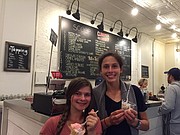Their bodies are sculpted by sweat and self-discipline. Their minds are as sharp as their chiseled muscles. Professional triathletes appear superhuman, training for hundreds of grueling hours each year.
But all that physical and mental work yields little income.
"Professional athletes don't make much money," says Katie Schumacher, former captain of Chattanooga Ironman Homestay, a program in which volunteers open their homes to visiting professional athletes, helping to offset their cost of travel. "It's hard for them to fully support themselves. The majority have day jobs or they're students. They get up at 4 a.m. and train; then they go to work or school," Schumacher says.
According to a 2012 article in Outside Magazine, only the top 5-10 percent of professional triathletes' salary ranges between $50,000 and $100,000. The rest must depend on other forms of income.
Programs like Homestay help these athletes compete. But their hosts benefit, too. The chance to interact with these seemingly super-humans leaves a lasting impression.
Here, three Homestay hosts share the lessons they took from sharing a space with professional triathletes.
Believe in your goals.
"It's one thing to go watch a game or see athletes on TV, but to have them in your home was a really good life lesson, especially for my 15-year-old daughter. She learned about race fees, how much they pay for their bikes. It helped her see that [becoming a professional athlete] is doable. It is attainable. And it showed her that your goals are worth pursuing even if you don't always get first place." - Oriel Wiggins
Treat your body like a machine.
"Good fuel in; good performance out. You have never seen a human being eat so many fruits and vegetables. These athletes treat their bodies like amazing machines. It made me not want to pop open the cookies at 10 p.m. because you worry they're going to look at you like 'what?'" - Katie Schumacher
Commit.
"To be really good at something, you have to be all in. These athletes arrive with their bikes in a thousand different pieces. They spread it out and put it together - then they have to start training. They are dedicated morning, noon and night. There is so much work that goes into it." - Katie Schumacher
Take difficulties in stride.
"For them to actually win, all the right things have to fall into place. Last May we had a major lightning storm the morning of the race. Everybody is panicking because all these athletes have traveled from all over. But the athlete that was staying with us said, 'You just do what you do. It's part of the deal.'" - Oriel Wiggins
Broaden your horizons.
"I was a professional dancer and my husband does triathlons, so we knew all about the athleticism part of it. For us, it was more about having a person from another country [England] and that cultural experience, that diversity; moving out of our 'normal.' It was partially a name game - in England they call things by different names. A jumper is what we call a sweater. She called her sunglasses 'sunnies.' We tried to give her experiences, too. She really wanted a burger ,and so after the race we took her to Urban Stack. She also really wanted to drive in the U.S., so we put her in my convertible. We had such a great time that we applied to be a host family for a GPS exchange student." - Julie Bage
We're all human.
"I have such respect for these athletes. Physically, financially, time-wise - it is such a massive investment. They seemed almost untouchable to me, like celebrities. I worried 'What if my bed isn't soft enough or we're too loud and it affects his performance?' But then he got there and said, 'Oh, I never sleep the night before the race!' He was too excited and nervous. He ended up taking second place. But it surprised me in some ways - the realization that, duh, they're humans just like me." - Oriel Wiggins

